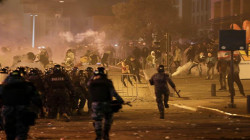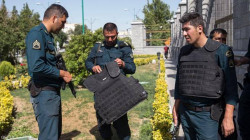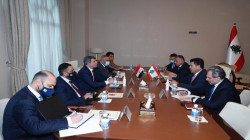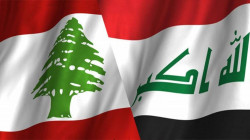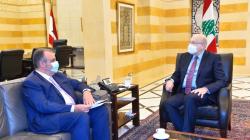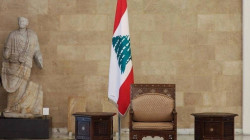Will the Dollar Mafia drive Iraq to the Lebanese scenario?
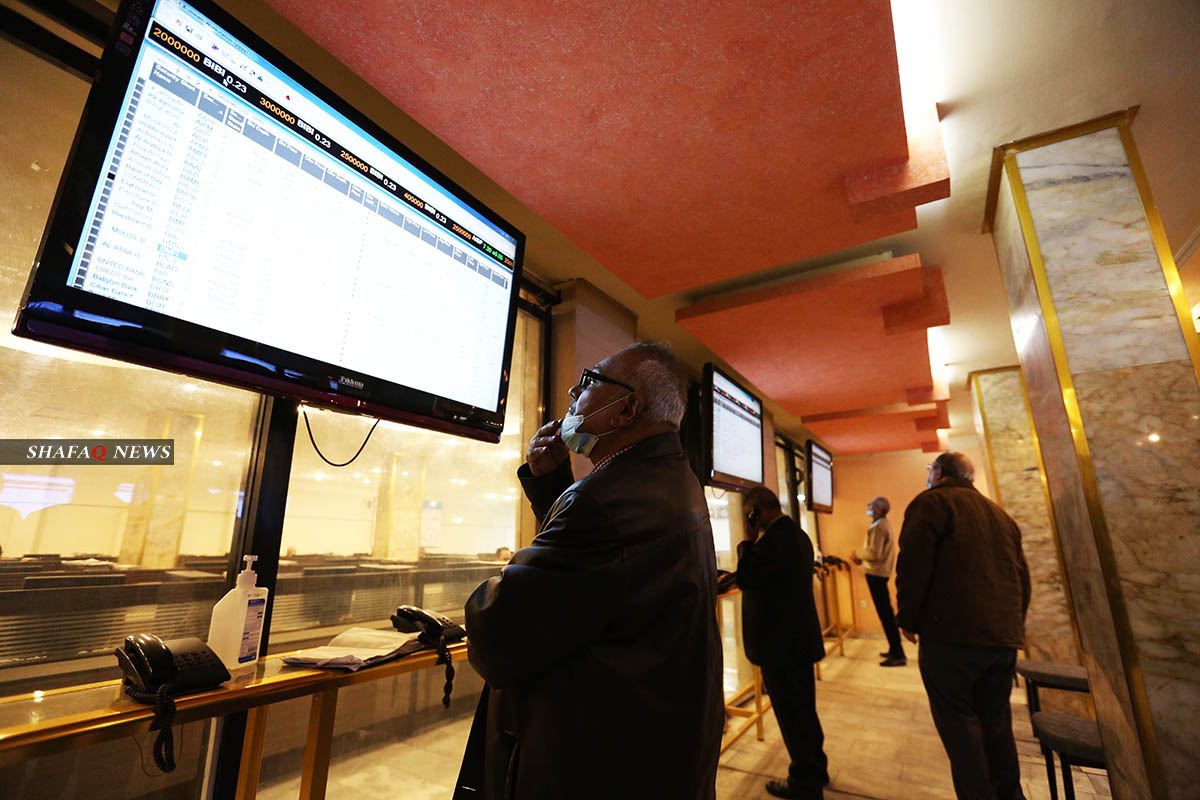
Shafaq News / Iraqi economists' concerns about the damage to a large segment of Iraqis, especially the poor and the low-income, renewed after the Central Bank decided to adjust the foreign currency's (the U.S. dollar) exchange rate.. Despite the Bank's assertions of the adjustment being "only once and will not be repeated". Also, questions and suspicions around the currency auction have been renewed as well.
Justifying the decision to adjust the exchange rate to 145,000 dinars for every 100 dollars, The central bank may have been right in its statement when it cut a key part of the economic problems' accumulation, "Due to the tyranny of political thinking and political priorities on economic thinking and development priorities over the past 15 years".
However, this justification -for Iraqis in general, and experts in particular- cannot substitute the dollar in the auction's puzzles. According to economists, the auction is trying to organize imports from abroad; but it contributes to the disappearance of large amounts of dollars from the Iraqi economic cycle –far from the state's eyes.
All indicators and information prove the effectiveness of the "Dollar Mafia" in Iraq and its role in controlling, benefiting, and smuggling the foreign currency from the Iraqi market. However, serious measures by the government, particularly the Ministry of Trade and Industry, customs, anti-corruption committees, parliament, or other regulatory authorities such as the Iraqi Integrity Commission, have not reached a proven conclusion about the reality of the dollar market, which has led to the foreign currency's scarcity as well as the dinar's weakening, and it led to the Central Bank's decision to devalue the dinar.
Sources told Shafaq News agency that three parties are dominating the central Bank and run the currency auction.. including one of the most popular political movements in Iraq.
The sources spoke on condition of anonymity for fear of the "dollar mafia" as they called it. However, the sources are for the owners of banking shops and outlets selling currency to citizens.
A banking office owner said that one of the parties behaves as the central Bank's owner and became a main player in the currency auction. In addition to the role of three parties backed by armed forces in Iraq, as they manipulate the dollar's prices at the citizens' expense.
The auction sells about 200 million dollars a day to banks and money transfer companies, mainly aimed at financing import activity and the Iraqi market's need for various goods.
According to official data, the Central Bank sold about 44 billion dollars in 2019; to finance imports and stabilize the dinar's value. Thus, many were stunned by the Central Bank's decision to devalue the dinar.
Sources told Shafaq News agency that the three parties -backed by armed forces, have funds and private banks.. and, therefore, benefit from the dollar auction in many ways.
Previous leaks have already reported widespread suspicions regarding the currency auction.. There are financial estimates that the differences between imported goods and the volume of funds transferred abroad are wide. Earlier investigations also showed that private and government banks had benefited from the currency auction, claiming they needed the dollar to finance commercial operations to buy goods from abroad.. yet, it was found that they had not imported any goods into Iraq for many years.
Deputies spoke of foreign currency smuggling operations outside Iraq. Some of these banks -affiliated with political forces, also benefit from the difference between the value of the dollar sold by the Central Bank and its exchange rate in the Iraqi markets.
"No one can interfere with the activities of these parties for they have a wide audience, political influence, and militia influence as well", the sources clarified to Shafaq News agency.
The continuation of these questionable practices has contributed mainly to the Iraqi budget's damage and the state's failure to pay state employees.. as has been the case recently when the government was forced to borrow internally to finance salaries.
Experts also expect that the devaluation of the dinar will increase the prices of many goods essential for the citizens' lives, which raises fears of widespread protests –similar to what happened in Lebanon, after the Lebanese lira collapse, the dollar's scarcity in the markets, and the banks' failure to pay dollars to bank deposit holders; a move that has sparked popular anger against banks besieged by demonstrations and bombarded by Molotov Cocktails and stones.
Informed sources revealed that political parties have been mobilizing masses to protest against the government and private banks in the next few days against the dinar's devaluation and corruption in the foreign currency's sale by the Central Bank, "Political actors are mobilizing for a scenario similar to what happened in Lebanon; by attacking banks and setting them on fire, as an expression of protest. These entities will protest the dinar's devaluation, as well as their resentment against several parties' monopoly -through banks owned by them, of the Central Bank's foreign exchange sales. Lebanon's scenario may be repeated in Iraq as the street is furious with the dinar's rapid collapse".
Experts and economists told Shafaq News agency that the dollar's raising against the dinar would increase poverty rates and cause catastrophic damage to the poor and low-income people.
"The expected 20% rise in commodity prices would increase the poverty of more than eight million people, according to the Ministry of Planning's latest statistics, to more than 15 million people", said Abdul Rahman Al-Mashhadani, a professor of political economics at the Iraqi University.
Jassim Hussein Al-Jabbara, MP for Saladin Governorate, said, "The government's policy and the Iraqi Central Bank dealt a blow to the people and service projects in general".
